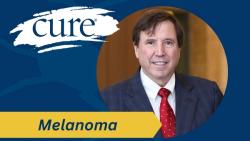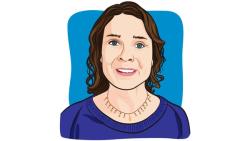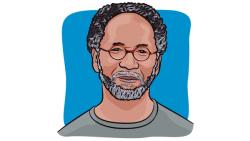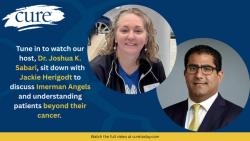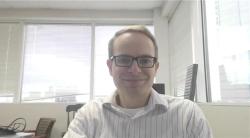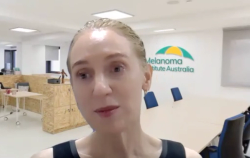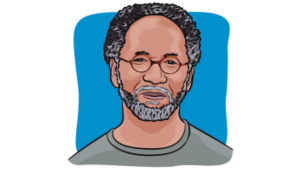Cancerphobic: How My Cancer History Put Me on ‘High Alert’ for Potential New Diagnoses
When two small spots appeared on my face, I couldn’t help but wonder if they might be cancerous. Had I failed to protect my skin with a hat or sunscreen? Suddenly, I was cancerphobic.
Every year, on our way to our favorite beach, we pass the Eglin Air Force Base. As we drive past, we're always looking to see which way the large radars are pointing and what the sign in front of the base shows regarding their security status level. We've passed when the radars were pointing west, pointing east and pointing north. When they're tipped upward, we get concerned, especially if the security alert is on high. We know that if the status is high, there's danger. And while we're thankful that our military is always watching, the public isn't always aware of impending danger.
Afte experiencing cancer, it seems my antenna is always on high alert. I’m always watching and waiting, hoping that the cancer never comes back, although I know there's a real chance it could. I pay more attention to my body: every ache, every pain, every random soreness could be an indicator that something needs attention.
That's when I realized that I’ve allowed myself to become cancerphobic.
It's not a place I choose to be, it just is what it is. Cancer does a number on a person. It caused me to go into an anxious and high-stress state. It doesn't feel good to know there are things that happen with our bodies over which we have absolutely no control.
When two small spots popped up on my face last year, I wasn't overly concerned. I assumed they were from years of sun exposure. They were small and unobtrusive. I covered them easily with makeup, but when they began to grow and change color a bit, I started watching them.
Years earlier, I'd had a small black melanoma removed from the top of my right hand. The doctor had done a punch biopsy to remove it, and I'd had three stitches to close the wound, leaving a tiny star shaped scar. All of this had happened before my diagnosis with breast cancer.
I knew how dangerous melanoma could be. I'd lost a high school friend to melanoma. He'd had a black mole on his back and didn’t think anything about it. Within a few months, he was dead. That incident caused my friends and me to examine our bodies closely. Who would have thought a simple mole could be so deadly?
The spots on my face didn't look like melanomas to me. They weren't large. They weren't black. They didn't look bad, but they were there, and they didn't used to be. I didn't want to take a chance, so I contacted a dermatologist and went in for an exam.
The dermatologist took a complete medical history and then began the physical exam. She had a specialized tool that allowed her to magnify and inspect the places carefully. After the exam, she said she didn't think the spots were cancerous, but couldn't be sure without biopsies. With my history of cancer and my family's history, too, I asked her to go ahead and remove them.
First, she gave me an injection of lidocaine to numb my face. Then, she used a special tool to shave off layer after layer of tissue. When she had removed the growths, she took a cautery tool and began to cauterize the surgical sites to prevent bleeding.
It was odd sitting there smelling my own skin burn. I was thankful for the dermatologist’s expertise and ability to help me, but also thankful I’d been proactive in seeking help.
According to the doctor, I should receive the biopsy results in a week or so. I'm praying there's no evidence of cancer.
I recently learned that the best way to protect your skin is to love and care for it. Recommendations suggest avoiding the sun during the hottest parts of the day, usually between 10 am and 4 pm. Moreover, the experts recommend using a sunscreen with a sun protection factor, better known as SPF, of 30 or higher when sunbathing.
The dermatologist recommended SPF 45 for me, and suggested I reapply it often. She said most people don’t think to reapply sunscreen every hour or two. That’s when the product can wear off due to sweating or perspiration. She reminded me skin damage can also occur on overcast days, so it's a good policy to use sunscreen any time I’m outside.
It's normal for a person who has experienced cancer before to feel cancerphobic occasionally. Cancer is a very serious and life-altering condition, but a fear of recurrence shouldn't prevent one from enjoying the outdoors. Since skin is the largest organ on our bodies, doesn't it deserve to be loved and taken care of? Each of us get one "body suit." I'm going to take good care of mine by watching it closely.
Related Content
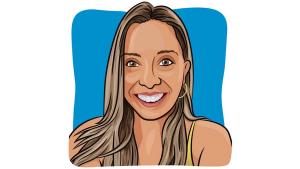 How Mantras Impacted My Life During a Colon Cancer Journey
How Mantras Impacted My Life During a Colon Cancer JourneyFebruary 6th 2026
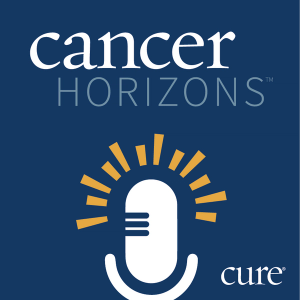 FDA Approvals from February 2024
FDA Approvals from February 2024February 26th 2024
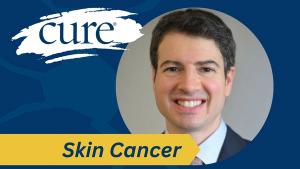 How Advances in Therapy Are Changing Skin Cancer Care
How Advances in Therapy Are Changing Skin Cancer CareFebruary 6th 2026
 Top Cancer Headlines from 2023
Top Cancer Headlines from 2023January 2nd 2024
 How to Become a Cancer Survivor and Transforming Patients into People
How to Become a Cancer Survivor and Transforming Patients into PeopleFebruary 4th 2026
View additional resources on CureToday.com


